Skywhale: Unearthing the Sonic Cosmos of ‘The World At Mind’s End’
The reissue of Skywhale’s ‘The World at Mind’s End’ on vinyl by PQR-Disques Plusqueréel—available in both classic black and striking splatter editions—unearths a remarkable artifact from a lesser-charted corner of 1970s British progressive music.
To hold the record, with its evocative cover art and immersive soundscape, is to reconnect with a band whose adventurous mindset remained, for decades, a hidden treasure.
For Steve Robshaw, Skywhale’s guitarist, composer, and driving force, rediscovering the album after all these years has been, as he puts it, “an unexpected delight.” He reflects on the passage of time with warmth: “Hearing Skywhale again and holding the fantastic vinyl and artwork is an unexpected delight… it’s been a long wait.”
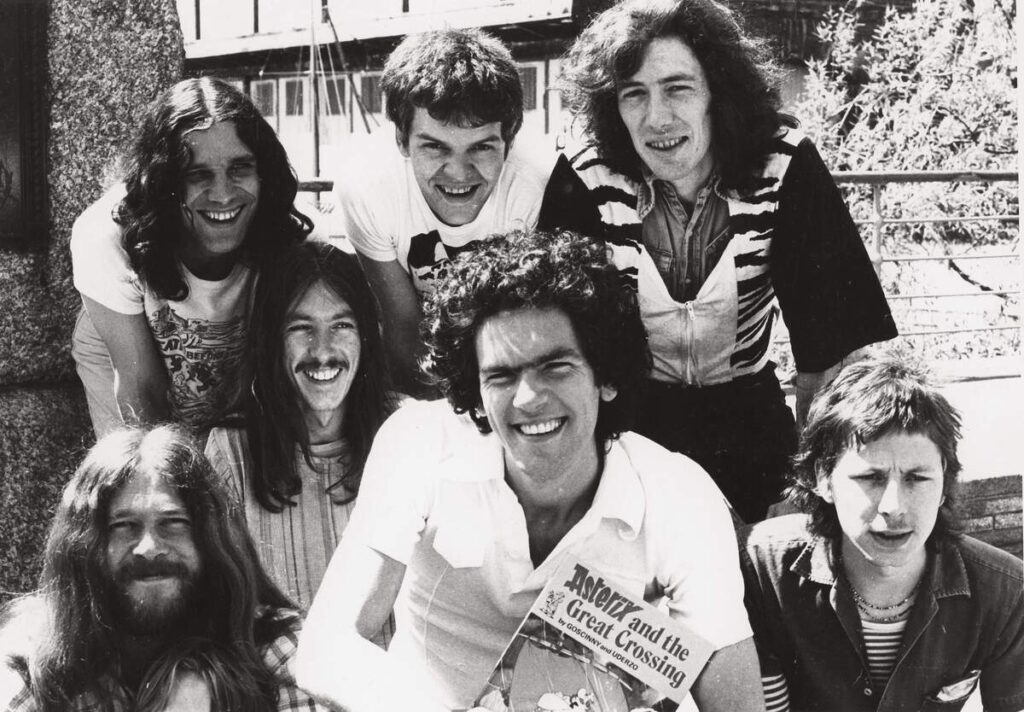
Robshaw’s musical journey began organically within a creatively nurturing household. “I was brought up in a musical family,” he recounts. “My mother was an excellent pianist who played regularly. One of my elder brother’s bands rehearsed at my home and often left Gibson and Fender guitars, which they allowed me to play anytime, which I did often.”
His earliest musical influences came from blues, jazz, and soul, the records that left a lasting imprint on him from a young age. “The local scene was mainly pop, rock, and jazz bands… Myself and friends were into the blues, developing into jazz… soul music arrived and became integrated into our style.” These influences fueled the energy of his early bands and collaborations, characterized by “great youthful enthusiasm.” Robshaw fondly recalls a local group called The Outrage, notable for featuring bassist Dave Hewitt, who later achieved renown with Babe Ruth. This wild mix of sounds and players hammered out the foundation for everything he’d go on to create.
The genesis of Skywhale was less an instantaneous spark and more a gradual convergence of like-minded musicians. Robshaw first played with fellow Huddersfield natives Stan Thewlis and John Schofield in their hometown before their paths reconnected in London in the late 1960s. Robshaw’s subsequent move to Bristol, where he sharpened his chops in big bands and theater orchestras, ultimately led him to reunite with Dougle, John, Roy Dodds, and Pete within the city’s burgeoning underground scene.
“We rehearsed in John’s basement working on my compositions that would become our style and this album’s theme,” Robshaw explains. Soon after, Stan, John Schofield, and Gwyo completed the lineup. The Bristol music scene of the era was “healthy and vibrant,” teeming with diverse jazz ensembles and rock bands. Notable figures such as Stackridge and saxophonist Andy Shepherd (later known for his collaborations with Carla Bley) were woven into the city’s thriving scene.
Skywhale’s music epitomized complexity and ambition, weaving together extended song structures, instrumental virtuosity, and unconventional arrangements. Robshaw describes their sound as “hopefully one-off and original,” acknowledging influences from “many, many greats, too many to mention,” yet deliberately unconstrained by allegiance to any single musical movement.
The band’s distinctive name, “Skywhale,” carries a whimsical yet enigmatic quality. “The story behind the name is simple,” Robshaw shares. “Myself and Dougle, lazing in the sun, spotted a cloud so whale-shaped that the banter led to it becoming our mysterious name.” It’s the perfect way to describe a band whose music is both down-to-earth and sky-high sprawling full of layers and feeling…
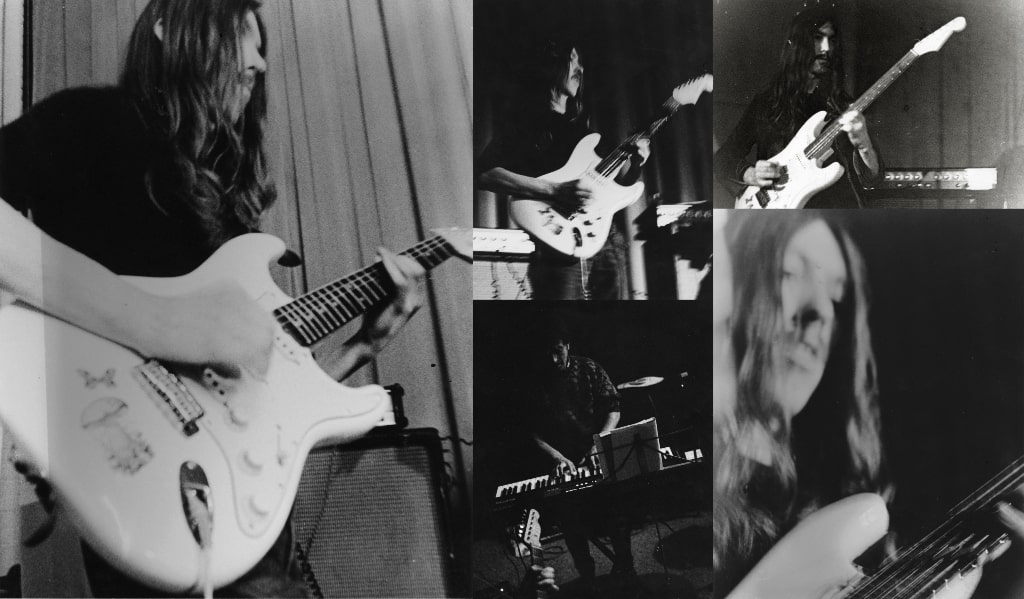
The album’s initial release on Firebrand Records was facilitated by Dennis Mann, who played a crucial role in providing the band with essential studio time. “Dennis helped us greatly with recording time at which he and Mick Avery were on the desk,” Robshaw recalls. Intriguingly, Robshaw declined a record deal from Island Records when they sought to sign him as a solo artist, a decision he unequivocally stands by: “I had no desire to record Skywhale without my gang… a good move although not financially.”
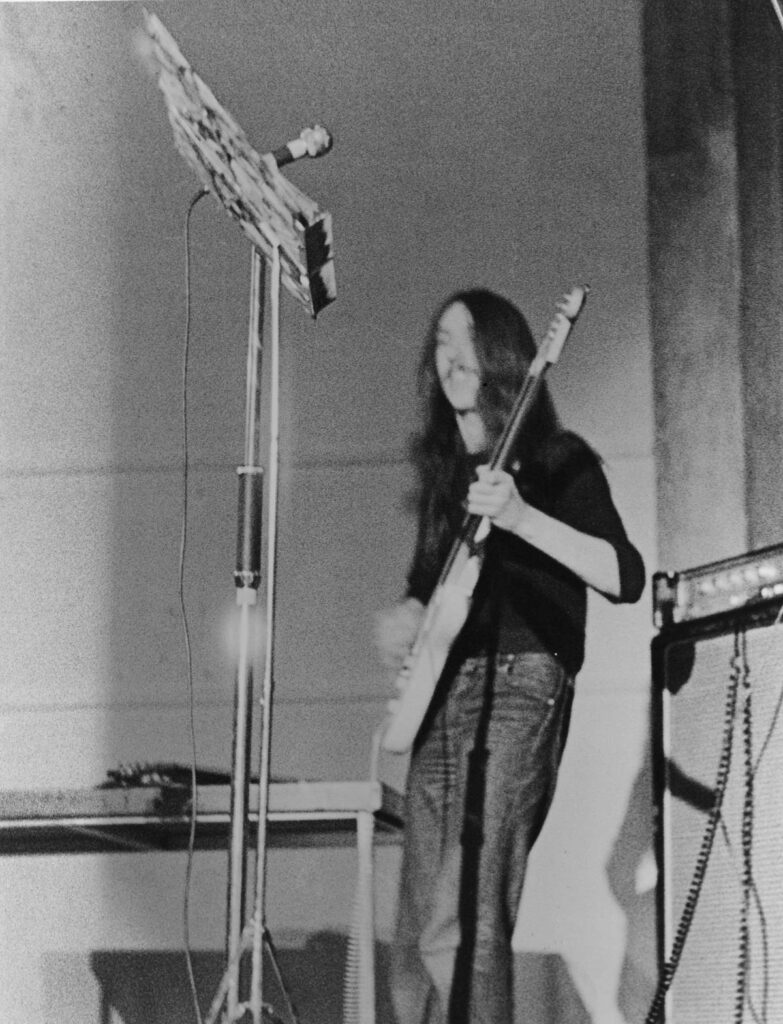
The majority of the compositions were penned by Robshaw. “The complex, often unison lines I then worked with Stan and Paul until we had them all the best we could and the main melodies were very tight.” The band’s meticulous approach involved intensive, multi-day rehearsals to perfect the arrangements.
The recording sessions were charged with energy and filled with moments that stayed with the band long after the music stopped. “Watching Mick recording the drum solo was like watching someone playing live with an incredibly exciting band,” Robshaw remembers. “And Stan’s mind-blowing soloing was out of this world… the atmosphere most days was electric and very enjoyable.” Much of the album’s rich, otherworldly soundscapes come from Howard Scarr’s masterful command of the EMS VCS 3 and ARP synthesizers. Integrating synthesizers into Skywhale’s multi-instrumental sound was a seamless process: “Gwyo’s expertise with sound and our constant encouragement made it all work nicely.”
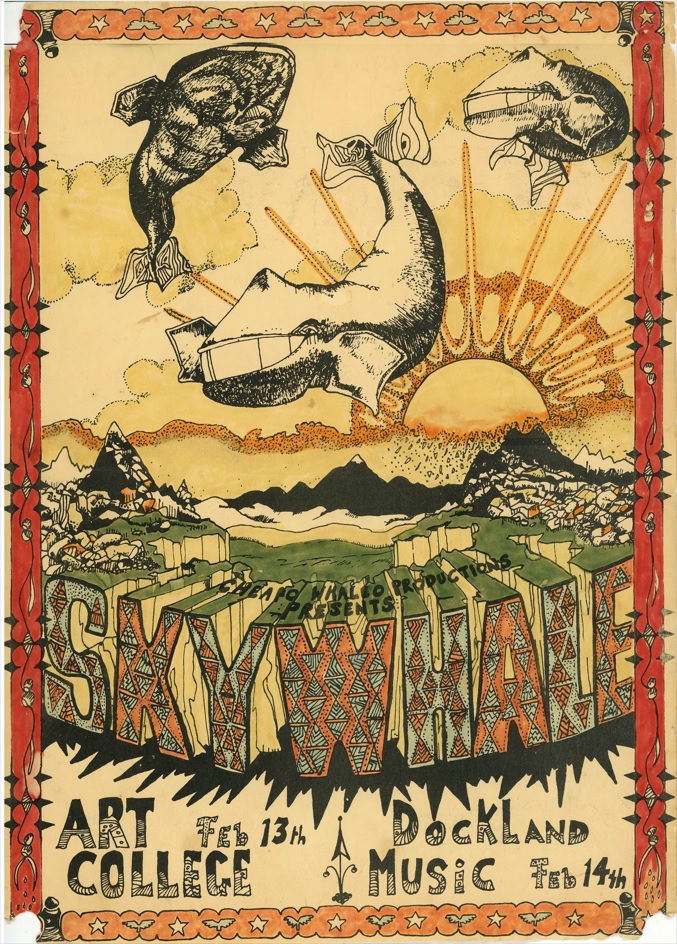
While many progressive albums of the era embraced elaborate conceptual narratives, ‘The World At Mind’s End’ eschews a strict storyline. Robshaw clarifies, “It’s not really a theme album, more of a representation of our live sound.” The songs stick to a plan but still leave plenty of space for the band to mess around and get loose when they play live.
Despite the album’s limited publicity and commercial traction upon its original release—“We unfortunately parted company with Firebrand shortly after finishing the album”—Skywhale did embark on a 12-day tour of Holland. Tragically, Robshaw was hospitalized after only two gigs, yet the remaining members carried on, delivering powerful performances that, fortunately, survive on tape.
The band continued to rehearse and compose new material but never recorded again. After that, Robshaw continued to explore his musical ideas through session work and international engagements in locales such as Copenhagen, Tokyo, and the Swiss Alps. Other members pursued notable projects: Stan joined Roberto Pla’s El Sonido de Londres, Roy Dodds worked with acclaimed artists like KD Lang, Eddi Reader, and Maddy Prior, while Gwyo contributed to sound design with Hans Zimmer.
Revisiting the original recordings for this reissue proved to be a revelation for Robshaw. “Hearing the new album is a treat, the sound, look, and feel of the whole thing is fabulous… I’m delighted.” The reissue, he feels, is “a fantastic thing to happen, very unexpected… we were so close to greater recognition at the time.” For Robshaw, this renewed attention represents more than a long-overdue acknowledgment. “I hope it spreads the word this time.”
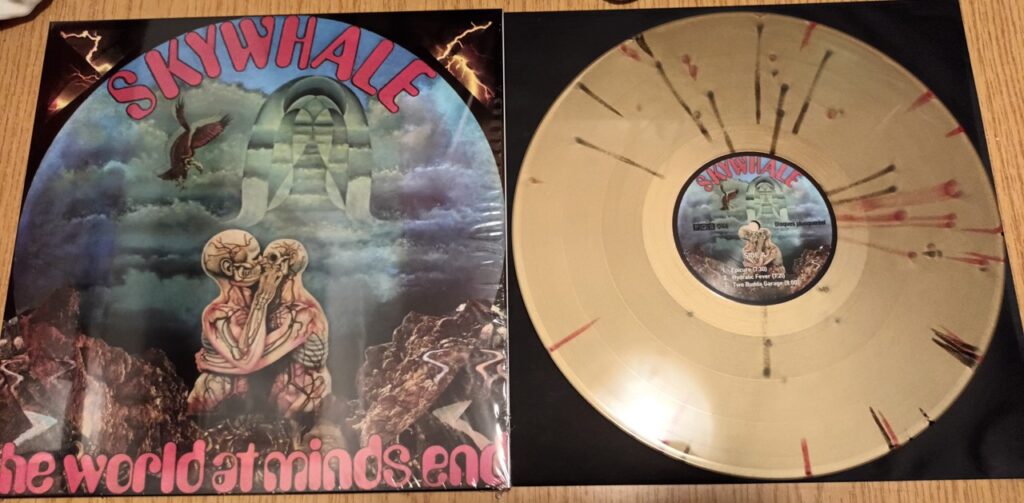
The album’s striking cover art was created by Carl Schofield, a longtime friend and fellow Huddersfield native, underscoring the close-knit, almost familial bonds that characterized the band’s genesis.
Today, Steve Robshaw remains creatively prolific, currently immersed in recording a substantial body of new, diverse material encompassing both instrumentals and songs. “It’s a long, long process but I’m loving it all… here’s to the future.”
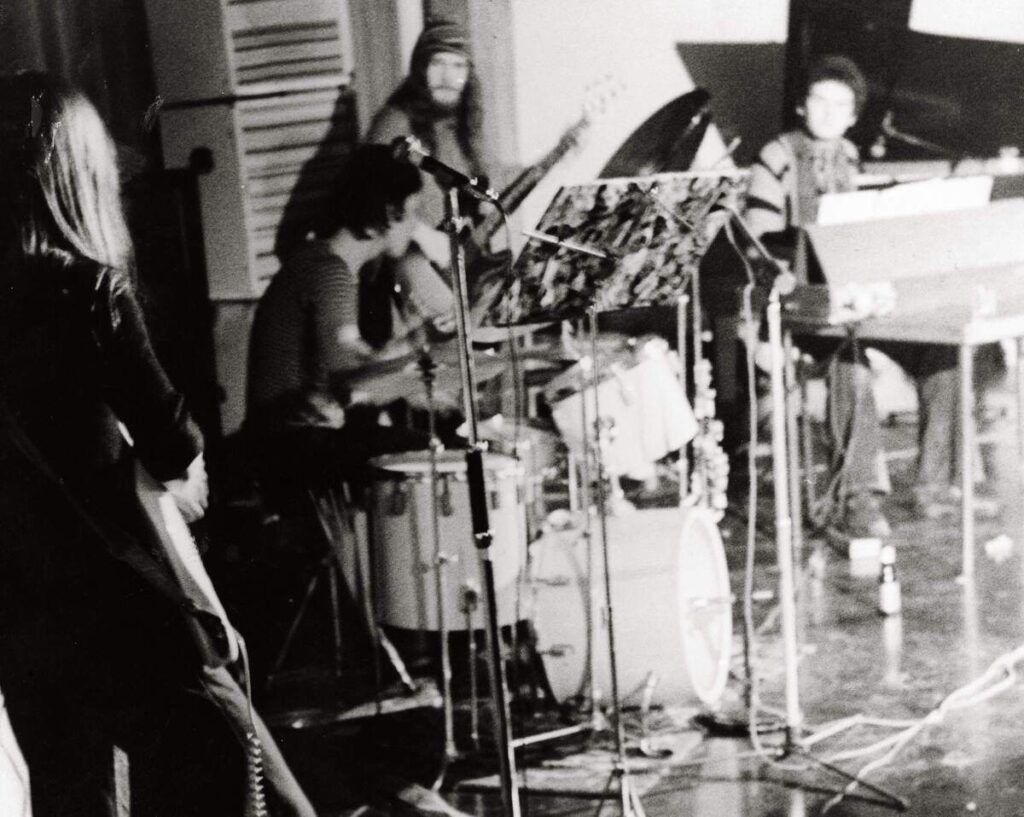
The reissue of ‘The World At Mind’s End’ casts a much-deserved spotlight on a band whose musical journey had long been obscured by time and circumstance. Skywhale’s music is a voyage into a unique world. As Steve Robshaw aptly puts it, “Holding the fantastic vinyl and artwork… it’s been a long wait—but worth every moment.”
Klemen Breznikar
Order your copy of the ‘World At Mind’s End’ on Black Vinyl or Splatter Vinyl via PQЯ Disques Plusqueréel.
PQR-Disques plusqueréel Store / Website / Facebook / YouTube

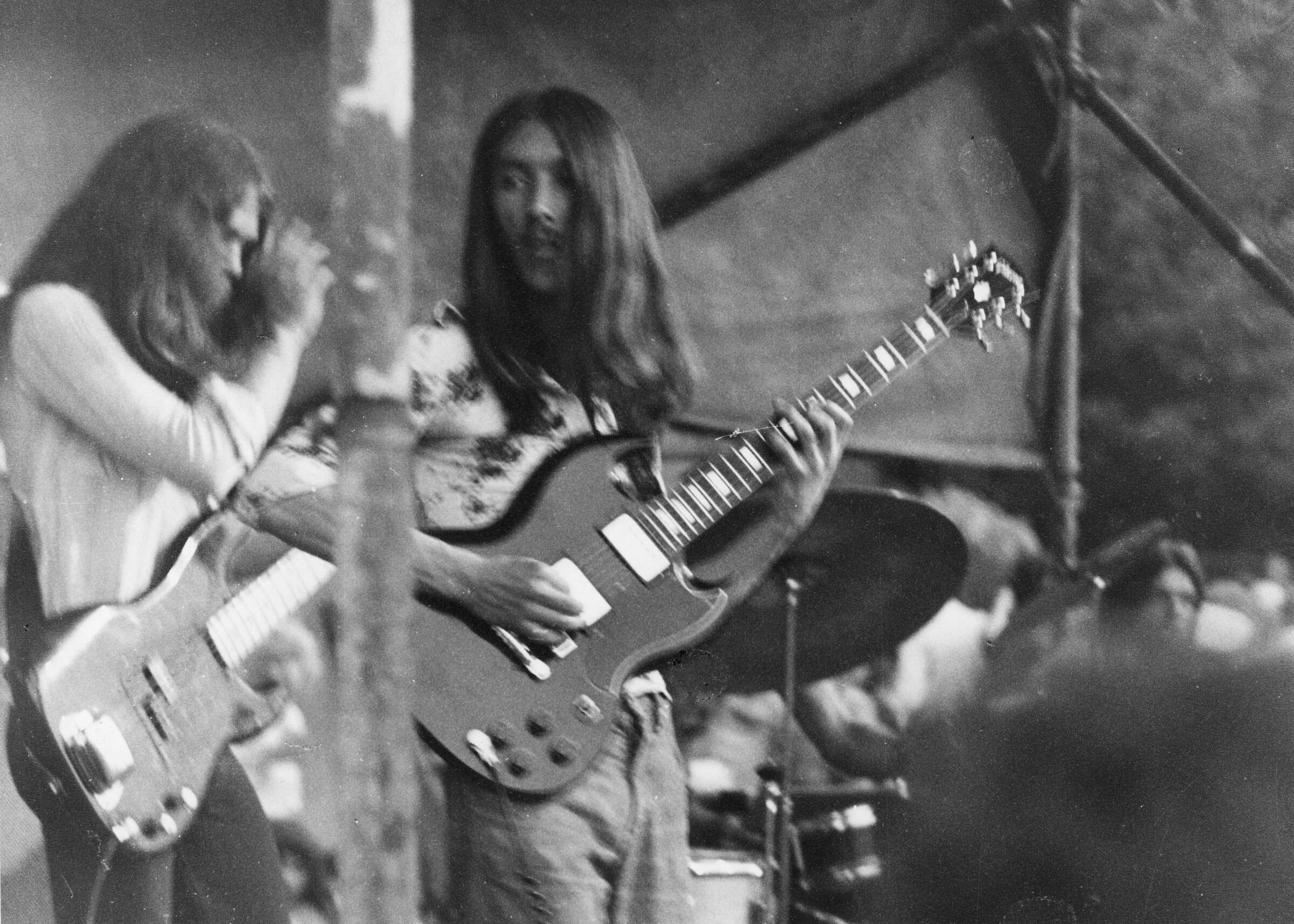
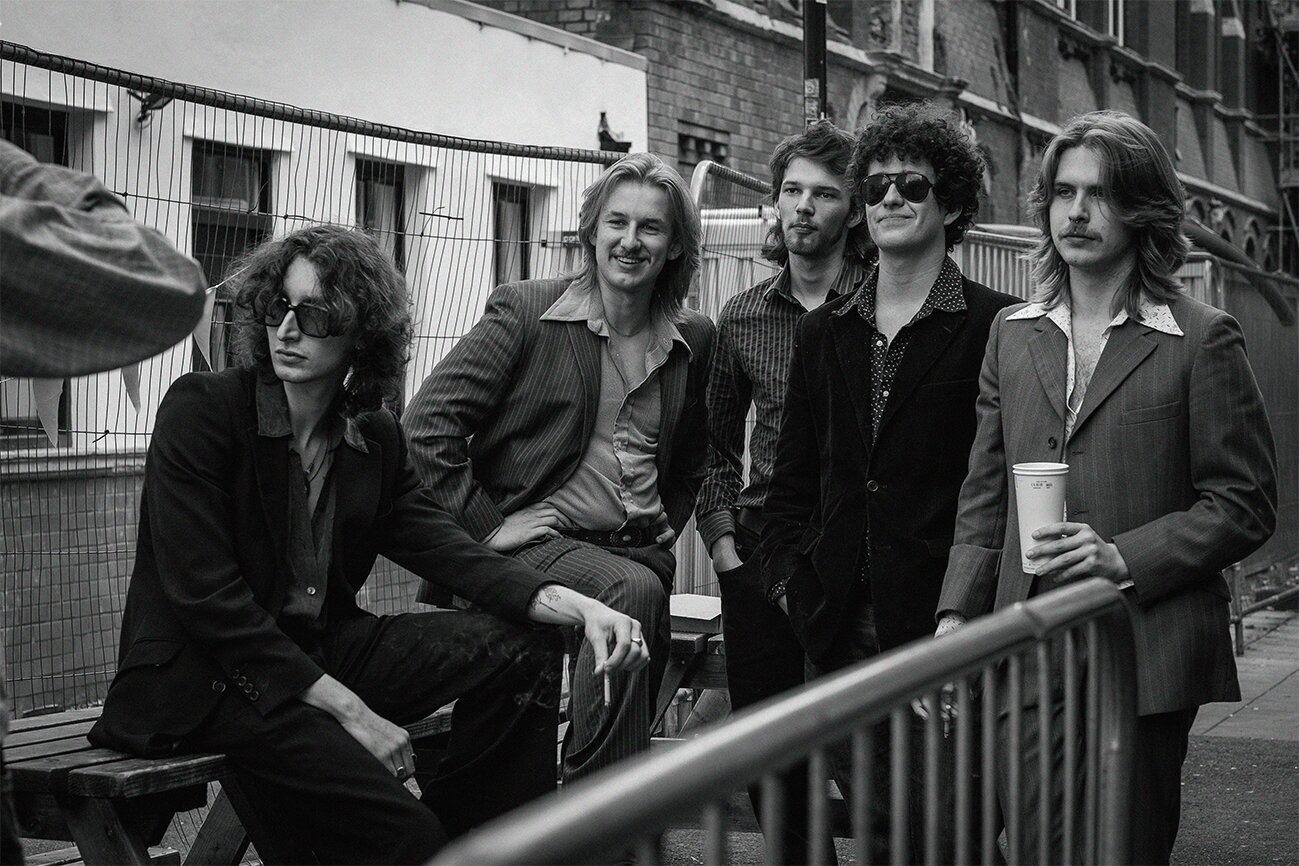

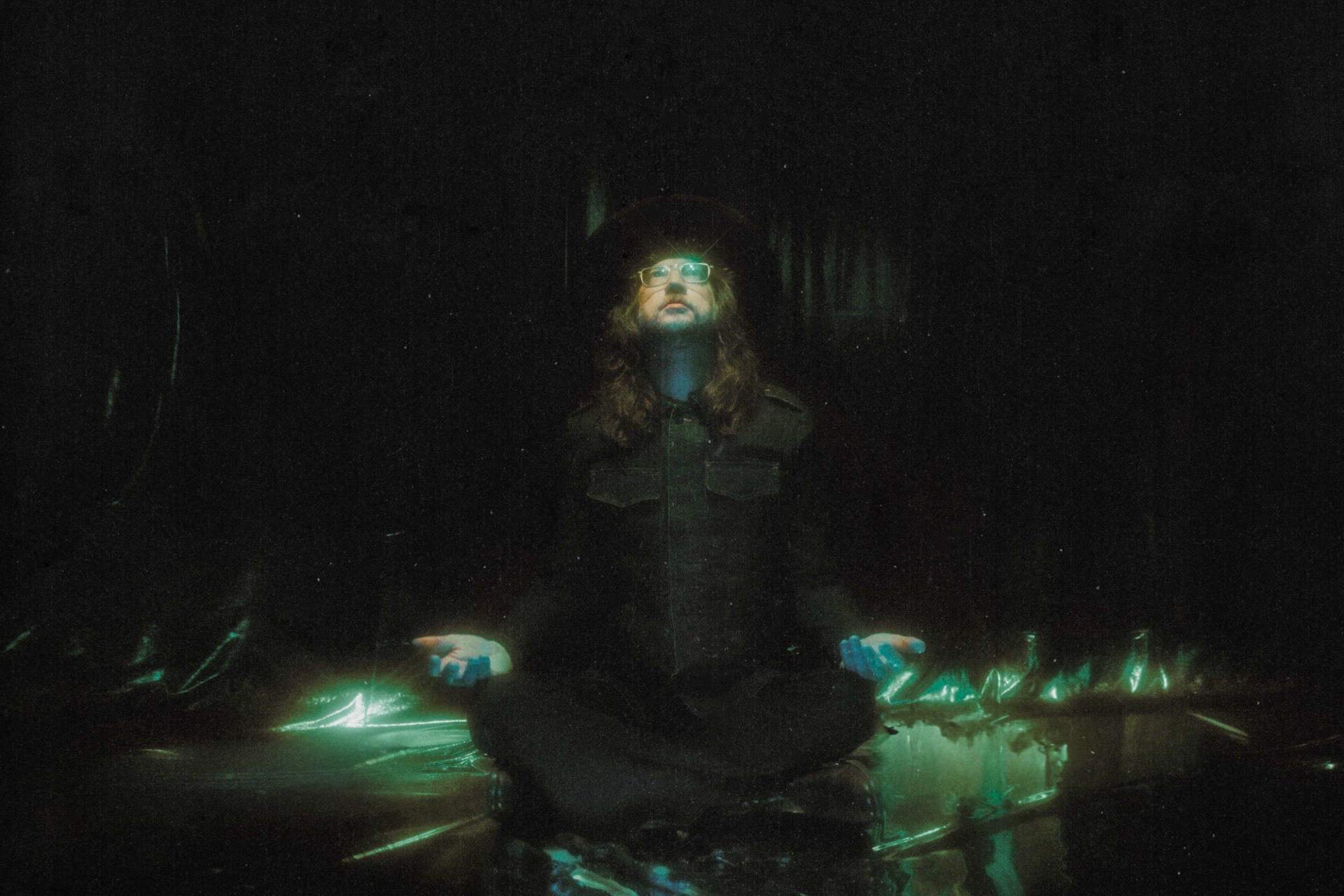
Thank you for the unknown